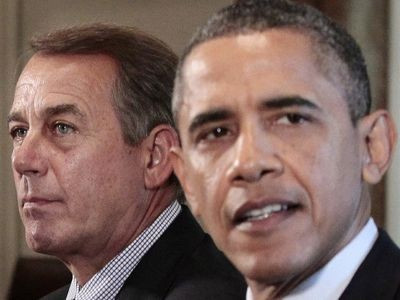Political Rhetoric: 'Socialism' Negative For Most Americans, 'Progressive' is Positive

While terms such as socialism, capitalism and progressive have traditionally elicited strong responses from the American public -- whether it be from conservatives who decry the evils of socialism or liberals who insist capitalism promotes economic inequality -- the recent Occupy Wall Street protests have brought the issue to the forefront of the national conversation in recent months.
Socialism v. Capitalism
Despite, or perhaps because of, some of the protesters' support of democratic socialist policies, socialism remains the most politically polarizing term in the U.S., according to a new analysis of political rhetoric from the Pew Research Center, a fact that has remained largely unchanged since Pew asked the same question in April 2010. In a survey of 1,521 American adults, including 380 Republicans, 489 Democrats and 569 Independents, 60 percent of respondents had a negative reaction to the word socialism, compared to 31 percent who had a positive reaction.
Pew reports there is a wide difference of opinion among racial, generational, socioeconomic and political lines when it comes to the term socialism. Perhaps unsurprisingly, about 90 percent of surveyed conservative Republicans told Pew they viewed the word negatively, compared to nearly 60 percent of liberal Democrats who reacted positively. Low-income Americans, defined as though making less than $30,000 a year, were also twice as likely to respond affirmatively to the word compared to respondents making over $75,000 per year, while voters over age 65 were the most likely to view the term with disapproval.
Meanwhile, the term capitalism generally prompted more positive (50 percent) than negative (40 percent) reactions. Affluent Americans were considerably more likely to respond positively (68 percent) than their low-income counterparts (39 percent), while there was also a significant difference amongst conservative Republicans (66 percent), Independents (52 percent) and liberal Democrats (46 percent.)
The discrepancy of responses among minority and white Americans is telling of the economic divide between those factions. Although more than half of white respondents reacted positively to capitalism, compared to 35 percent who viewed it adversely, Hispanic respondents were more likely to view the term negatively (55 percent) than positively (32 percent). Black voters also tended to have a unfavorable view of capitalism (51 percent) although those voters were more likely to see it positively (41 percent) than the Hispanic respondents.
In a revelation that may be surprising to some, liberal Democrats and Occupy supporters did not have an overly critical view of capitalism. Forty-six percent of liberal Democrats reacted positively to the word -- compared to more than the 42 percent of conservative Democrats -- while 45 percent of Occupy Wall Street supporters also responded favorably.
'Progressive' Elicits Most Positive Reactions
Pew reports the terms conservative and liberal received the most polarizing responses. For instance, a hefty 89 percent of Republican viewed the word conservative with a positive light, compared to a 68 percent of Democrats who reacted favorably to the term liberal.
However, the responses varied drastically based on age and race. Sixty-two percent of Americans over age 65 were more likely to respond positively to the term conservative (62 percent) compared to liberal (34 percent) although respondents between ages 18 and 29 were equally as likely to view the two terms positively (61 percent on both counts).
Sixty-four percent of white voters, who are more likely to prescribe to conservative principles, viewed conservatism positively compared to 60 percent of Blacks and 56 percent of Hispanics. Interestingly, respondents who did not complete or attend college were also more likely to respond positively to conservative. SIxty-four percent of those with some college experience viewed it positively, versus 54 percent who viewed liberal the same way, while 65 percent of those with a high school or education or less also viewed the term favorably.
Despite the political divides between the terms liberal and conservative, two-thirds of the public reaction to the word progressive were positive. While Pew reports there was little difference among Democrats' reaction to liberal and progressive, the discrepancy was clear amongst Republican respondents. Fifty-five percent of Republicans reacted positively to the word, compared to the 20 percent who reacted similarly to liberal. Independents also had a considerably more favorable reaction to progressive (68 percent) than liberal (54 percent.)
© Copyright IBTimes 2025. All rights reserved.





















